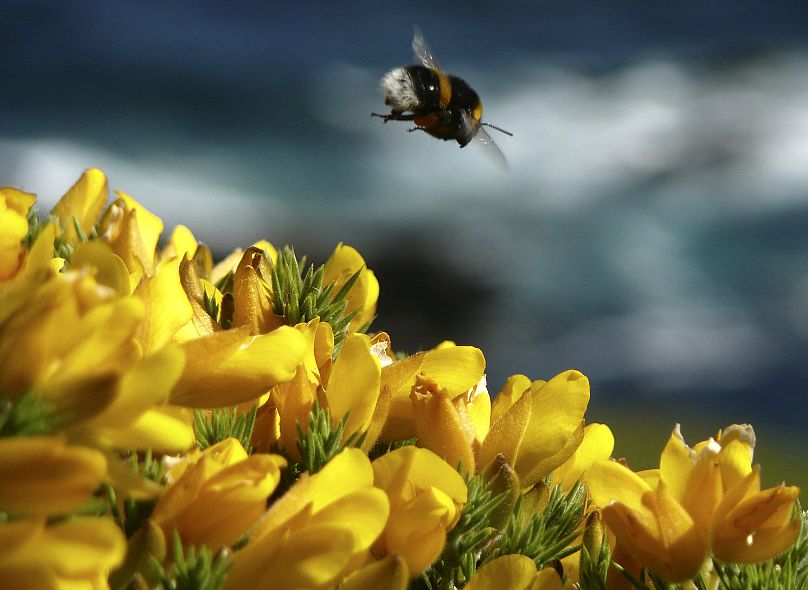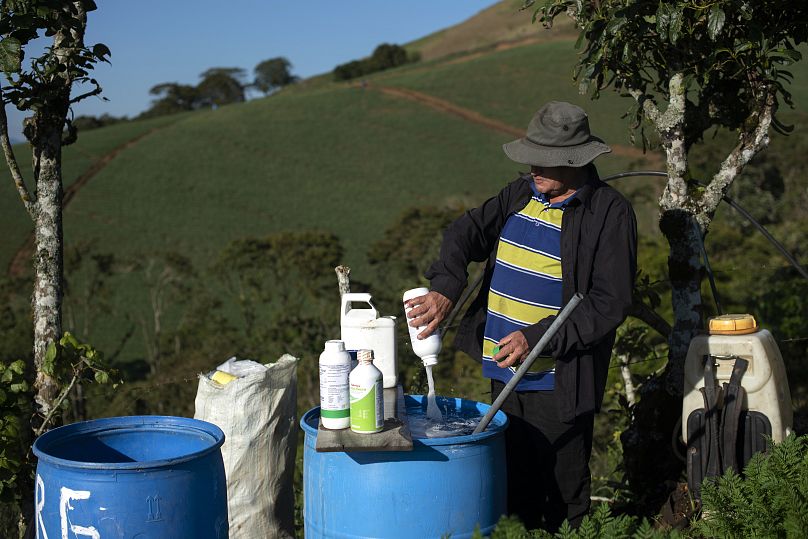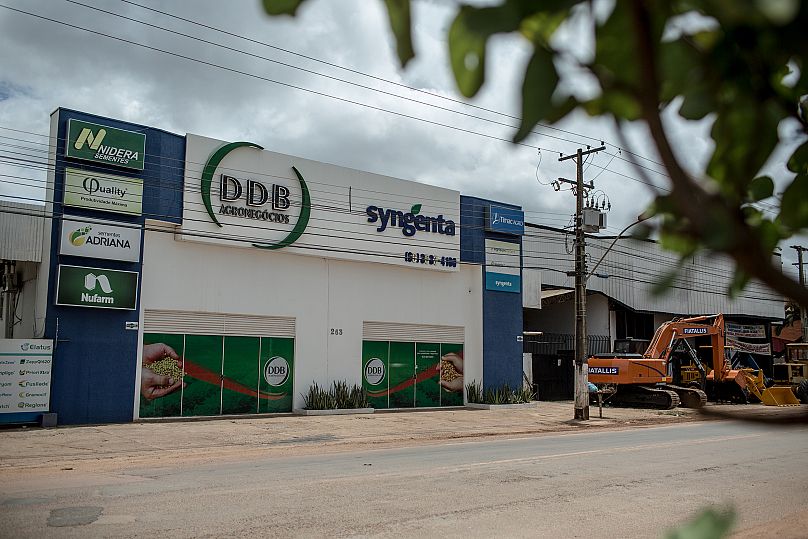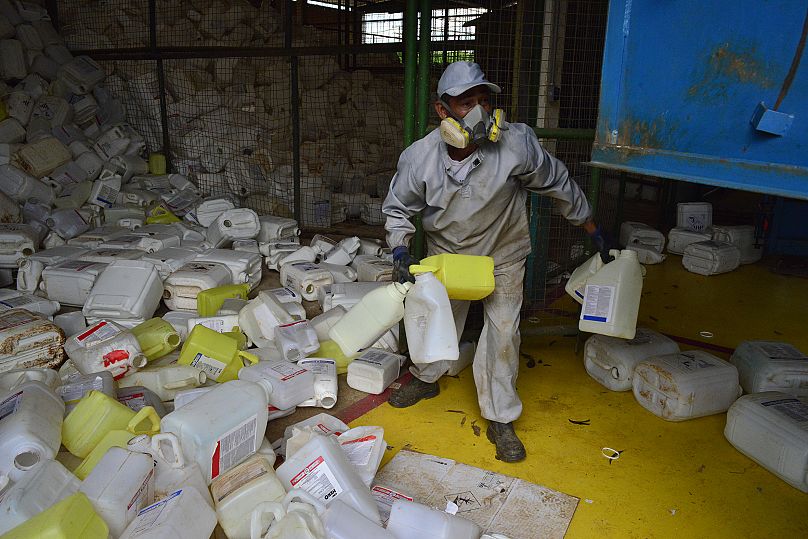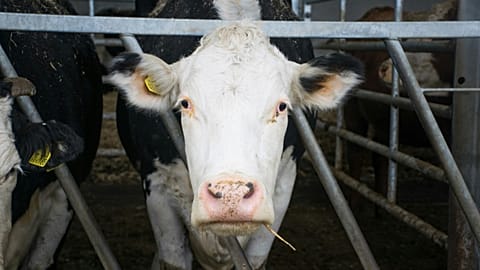From 'false' job loss arguments to mysterious transit routes: Here’s what you need to know about Europe’s trade in banned pesticides.
Keeping up with Europe’s trade in banned pesticides is a full time job for Laurent Gaberell, an agriculture and food expert at Swiss NGO Public Eye.
 ADVERTISEMENT
ADVERTISEMENT
 ADVERTISEMENT
ADVERTISEMENT
The EU has the strictest regulations in the world for pest-control substances. But toxic chemicals that are banned in the bloc because of their impact on human health and the environment are still being exported to other, often poorer countries.
For Gaberell, that’s an “unacceptable” breach of global justice. Some European countries are seeking to remedy it through national bans on exporting banned pesticides but significant loopholes remain.
“For us, it’s a matter of principle and of justice that you cannot turn a blind eye on what happens,” the Swiss campaigner tells Euronews Green.
A recent investigation from Public Eye and Greenpeace UK’s Unearthed unit reveals how closely agrochemical companies are watching these trade routes too. It found that Germany’s exports of banned pesticides almost doubled in 2022 as the government moves to outlaw the practice.
If the proposed law passes, Germany will become the third EU state to tackle this “hypocrisy” after France and Belgium - which passed a Royal Decree to that effect in June 2023. Switzerland has also banned the export of five hazardous pesticides since 2021.
Momentum is building, but, says Gaberell, “each of those export bans have their own loopholes, their own scope, and their own problems.”
He also suspects that there is one “big loophole” that will only be closed when the EU acts together as a whole.
Why have German exports of banned pesticides surged?
The German government announced its intention to stop the export of banned pesticides in September last year.
Before shipping their pesticides abroad, companies must notify the national authority - which then informs the European Chemicals Agency (ECHA) - of the quantities they plan to send. These export notifications are the only public data showing the extent of the international trade in these banned chemicals.
In 2022, records show that more than 18,000 tonnes of prohibited pesticides were due to be exported for agricultural use from Germany - almost double the amount notified in 2021.
28 different chemicals were on the list - including “bee killing” insecticides and pesticides banned for their potential to cause cancer and pollute groundwater.
This surge in exports is partly because agrochemical giant Syngenta appears to have relocated some of its exports to Germany from other countries like France and Belgium.
“These findings suggest Germany is on track to becoming Europe’s top dealer in banned pesticides,” said Lis Cunha, a trade expert at Greenpeace Germany.
“As agrochemical companies shift their supply chains to avoid national export bans in other countries, it’s vital that Germany closes off this new route out of the EU.”
But campaigners have their doubts about how effective Germany’s ban will be in stopping this trade, after seeing a copy of the draft legislation, obtained by German TV programme Monitor in June.
Unearthed and Public Eye analysis suggests that around 20 per cent of the shipments notified in 2022 would still be allowed under the ban in its current form. A loophole in the law would mean that active ingredients used in ‘plant protection products’ can continue being exported as pure chemicals.
How effective is France’s ban on pesticides?
In January 2022, France introduced a landmark ban on the manufacture and export of “crop protection products” already outlawed in Europe.
But despite the new ‘Egalim’ law, 7,475 tonnes of 155 different banned pesticides were shipped abroad between January and September last year, according to a previous Unearthed and Public Eye investigation.
As with the draft German law, chemicals can still be exported in their pure form from France - and then diluted and mixed in the importing country.
“The other loophole is a bit more technical,” explains Gaberell, “it has to do with the way the pesticide was banned. One [way] is a formal decision by the Commission, and the other way is the approval just expired, because the industry decided to drop its request for a renewal.”
The French export ban doesn’t apply to pesticides in this latter situation. An explicit, joint order from the ministers of agriculture and the environment is needed to bar their export. No such orders have yet been issued.
“We are hoping to get France to move to close these loopholes which are allowing manufacturers to continue exporting large quantities of banned pesticides,” says Gaberell.
Campaigners will be up against the might of the pesticide lobby, however, which has fought restrictions all the way.
In a letter to the Prime Minister, the heads of the French arms of Bayer, Syngenta and BASF claimed that more than 2,700 jobs were threatened by the export ban.
But one year after the law came into force, French journalists found that no direct layoffs had been reported, as the limited number of workers affected were reallocated to other tasks.
“They’re really on the firing line in France now, the pesticide lobby, for having just lied to the parliament,” says Gaberell.
Is Belgium’s export ban the best?
Belgium passed a Royal Decree in June banning the export of certain prohibited agrochemicals.
Gaberell thinks this export ban is the “most comprehensive” in Europe as it covers pure chemicals as well as the final product.
“What Belgium did is they looked at the banned pesticides that were exported during the previous years and they targeted those,” he explains. By contrast, Germany’s long list of imminently blacklisted pesticides includes many that have never been sent from the country.
It also took a more nuanced approach, accounting for the fact that pesticides can have different uses - in agriculture or as biocides. Since Belgium’s ban also applies to the export of banned pesticides for use as biocides where this use is banned in the EU too, it closes another potential loophole.
Are big chemical companies really shifting their pesticide production?
The pesticide industry is dominated by a few big multinationals, with subsidiaries in various countries. As with the increase in exports from Germany last year, the export notification data suggests they’re able to quickly shift their operations in response to national bans.
But is this really what giants like Syngenta are doing? For Gaberell, that’s the big question mark hovering over all national rule-making.
An export notification doesn’t mean a compound was manufactured in that country. In theory, it’s possible that Syngenta - for example - is still making the banned herbicide atrazine in France and just exporting it from Germany.
From 2004 to 2021, Syngenta exported this weedkiller (classified as a likely human carcinogen) from France to countries including Ukraine, Sudan and Pakistan. After the French ban came into force in 2022, it started exporting atrazine to those same countries from Germany.
Technically, it might not even be physically exporting the pesticide from Germany, explains Gaberell. The way an exporter is defined doesn’t mean a compound needs to have gone through the country. It simply means that a company based or with a subsidiary in Germany has a contract to ship the product.
As much as this potential arrangement makes a mockery of national efforts, it’s perfectly legal under the terms of trading within the EU.
“We really have a suspicion that this is a big loophole now, to just evade national export bans,” says Gaberell.
In Syngenta’s case, it’s unclear what production facilities it does have in Germany, further fuelling campaigners’ doubts. There are four Syngenta locations in the country, according to the company’s website - all offices or geared towards the seed and flower arms of its business.
“Producing active ingredients for crop protection is technologically complex,” Syngenta told Euronews Green in response. “We maintain a global supply chain of ingredients and intermediates needed for our finished products.
“To ensure that our compounds meet our stringent production standards and have the highest quality, we produce in only a few places around the world from where we export to more than 90 countries. Our high-tech production plants in Europe have proven track records of safety and quality and decades of experience.”
What are the pesticide industry’s lobbying tactics?
The threat of job loss is the main argument used by the pesticide lobby, at both a national and EU-wide level.
The EU Commission committed to stopping the export of EU-banned pesticides back in 2020, but there’s been slow progress since. Partly, Gaberell claims, because of industry lobbying.
“They're basically saying that this will destroy the industry. That's the argument they're using; they’re pressuring politicians with arguments of competitiveness and jobs and it’s working a lot in the [current] context.”
Pesticide producers argue that banning exports will have no impact on developing countries, as they will continue to ship the chemicals from elsewhere.
“It's a powerful argument that will convince a lot of politicians that chemicals require an international solution instead of having the EU move.”
Why are campaigners calling for an EU-wide export ban?
But, Gaberell counters, “if the EU gets the regulation right, it will have a global impact as well, because it's a global player.” Relocating production outside the EU may also prove too costly for some firms to be worthwhile - especially for compounds that have been on the market for decades.
Another “powerful tool” in the EU’s arsenal is its status as a major importer of food. A decision to ban a chemical in the bloc has implications for the residue allowed in food imports, and so will influence regulation in many exporter countries, like Brazil.
With green priorities shifting, and EU elections on the horizon, the Commission has yet to produce a proposal.
“Honestly they are really under time pressure, I don't know if they will manage to come up with something by the end of the year,” says Gaberell.
If the new Commission continues its commitment to banning pesticide exports beyond June 2024, the Public Eye expert predicts it will be 2026 before a law comes into force - finally righting a toxic double standard.
In a statement, Syngenta added that, “The safety of Syngenta’s products for people and the environment is very important to us. We have invested hundreds of millions of dollars in our products to ensure their safety. As a highly regulated industry we must satisfy national authorities that we meet all required levels of human and environmental safety before we are allowed to market and sell our products.”















